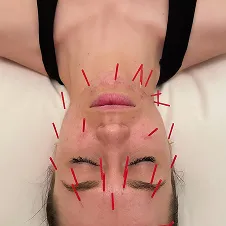FAQs
Frequently Asked Questions
Naturopathic medicine is a distinct system of primary health care that emphasizes prevention and the self-healing process through the use of natural therapies. Naturopathic medicine aims to find the root cause of each condition, focuses on preventative medicine, supports the body in its ability to heal itself, helps to heal the whole person through natural therapies such as nutrition, lifestyle counselling, therapeutic supplementation, botanical medicine, and acupuncture. Naturopathic medicine takes an evidence based approach by using the best research evidence with clinical expertise. Naturopathic medicine encourages optimal health and well-being. Naturopathic doctors (NDs) have completed a four-year naturopathic medical program at an accredited naturopathic medical school. NDs are clinically trained primary care providers. NDs that practice in Ontario are regulated by the College of Naturopaths of Ontario. “ND”, “naturopathic doctor”, and “naturopath” are protected titles in Ontario.
A naturopathic doctor can help figure out the root cause of hormonal imbalance by doing a thorough health assessment including specific bloodwork and hormonal testing to help measure different hormone levels in the body. A naturopathic doctor will help to rebalance hormones by using both an evidence based approach combined with clinical expertise.
Acupuncture needles are very tiny and thin. You may feel the needle going in, which is usually said to feel like a prick and then goes away. Once the needles are in some report a heavy or light sensation, dull or numb feeling. If there are any sharp sensations then that is often due to the needle being too close to a nerve and the needle is taken out and a new needle is relocated.
Though bloodwork is not mandatory it is something I strongly suggest getting done to help get to the root cause of your complaints. It is also a great place to start if wanting to assess your health and can help guide treatment. Bloodwork testing is individualized and I like to provide different options to fit any budget. I always encourage patients to look into their benefit plans as some insurance plans cover bloodwork.
Bloodwork is ordered to assess what your current vitamin D and B12 levels are and then during a follow-up appointment we will discuss your results and what optimal levels we are looking for. Then we establish the frequency of the vitamin injections based on your current levels. A vitamin injection visit is a short visit usually 5-10 minutes in duration. Typically, vitamin D and B12 are injected into your posterior deltoid (back/side of your shoulder) and people usually say that you may feel the initial prick but then it subsides. It is important to refrain from heavy lifting or exercising after getting a vitamin injection to prevent bruising. Most people report they feel an increase in energy after their second injection but often even after their first injection.







